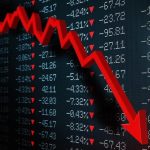Markets react as HMPV cases rise, with Sensex dropping over 1,260 points and Nifty falling 400+ points
The emergence of the Human Metapneumovirus (HMPV) has recently garnered attention due to its impact on public health and potential economic implications. HMPV, a respiratory virus causing flu-like symptoms, primarily affects young children, the elderly, and individuals with weakened immune systems. While it has been known since its discovery in 2001, recent surges in cases, particularly in China, have raised concerns about its broader effects.
Understanding HMPV
HMPV is an RNA virus belonging to the Pneumoviridae family. It spreads through respiratory droplets, direct contact with infected individuals, or contact with contaminated surfaces. Symptoms typically include cough, fever, nasal congestion, and shortness of breath. In severe cases, it can lead to bronchitis or pneumonia, especially in vulnerable populations. Despite over two decades since its identification, there is currently no vaccine for HMPV, making it a persistent public health challenge.
Recent Developments
In late 2024 and early 2025, reports indicated a significant increase in HMPV cases in China, particularly in the northern provinces. Hospitals have experienced a surge in patients presenting with respiratory symptoms attributed to HMPV. This situation has drawn parallels to the early days of the COVID-19 pandemic, prompting heightened vigilance among global health authorities. However, it’s important to note that, as of now, neither Chinese officials nor the World Health Organization (WHO) have declared a state of emergency regarding HMPV.
Impact on Global Markets
The detection of HMPV cases has had a noticeable impact on financial markets, particularly in India. On January 6, 2025, the Indian stock market experienced a significant downturn, with the Sensex falling by over 1,260 points and the Nifty declining by more than 400 points. This decline was attributed to investor concerns over the potential spread of HMPV and its implications for public health and economic activity. Market experts, however, suggest that the reaction may be more reflective of existing global economic factors and sector-specific issues rather than the virus itself.
Sector-Specific Impacts
Certain sectors are more susceptible to the effects of health scares like HMPV:
Travel and Tourism: The travel industry is often among the first to feel the impact of health-related news. Concerns over the spread of HMPV can lead to travel advisories, reduced bookings, and cancellations, affecting airlines, hotels, and related services.
Healthcare: Conversely, the healthcare sector may experience increased demand for medical supplies, hospital services, and pharmaceuticals. Companies involved in producing respiratory treatments or diagnostic tools may see a surge in business.
Consumer Goods: Consumer behavior can shift during health scares, with increased demand for hygiene products, masks, and over-the-counter medications. Retailers and manufacturers in these segments might experience a temporary boost in sales.
Investor Sentiment
Investor sentiment plays a crucial role in market dynamics during health crises. The swift reaction to HMPV news reflects the market’s sensitivity to potential disruptions. However, analysts caution against overreaction, emphasizing the importance of distinguishing between immediate market sentiment and long-term economic fundamentals. As one market expert noted, the recent market movements are influenced more by existing global economic factors than news of the virus.
Global Economic Considerations
While HMPV has caused localized health concerns, its impact on the global economy remains limited compared to past pandemics. The absence of widespread transmission and the current containment measures suggest that, barring significant mutations or changes in transmission dynamics, HMPV is unlikely to cause major economic disruptions. Nonetheless, the situation underscores the need for robust healthcare systems and preparedness to manage potential outbreaks.
Public Health Response
In response to the rise in HMPV cases, countries are enhancing surveillance and healthcare readiness. China has implemented monitoring systems to track pneumonia cases of unknown origin, anticipating a seasonal spike in infections during the winter and spring months. Global health authorities, including the WHO, are closely monitoring the situation but have not declared any emergency status. The focus remains on standard public health measures, such as promoting good hygiene practices and ensuring adequate healthcare resources.
The emergence of HMPV as a health concern has had a discernible, albeit limited, impact on global markets. While certain sectors may experience short-term effects due to shifts in consumer behavior and investor sentiment, the overall economic implications are currently contained. Ongoing monitoring by public health authorities and measured responses by investors are essential to navigate the evolving landscape. Maintaining perspective and focusing on long-term fundamentals will be key for market participants in the face of such health-related developments.





